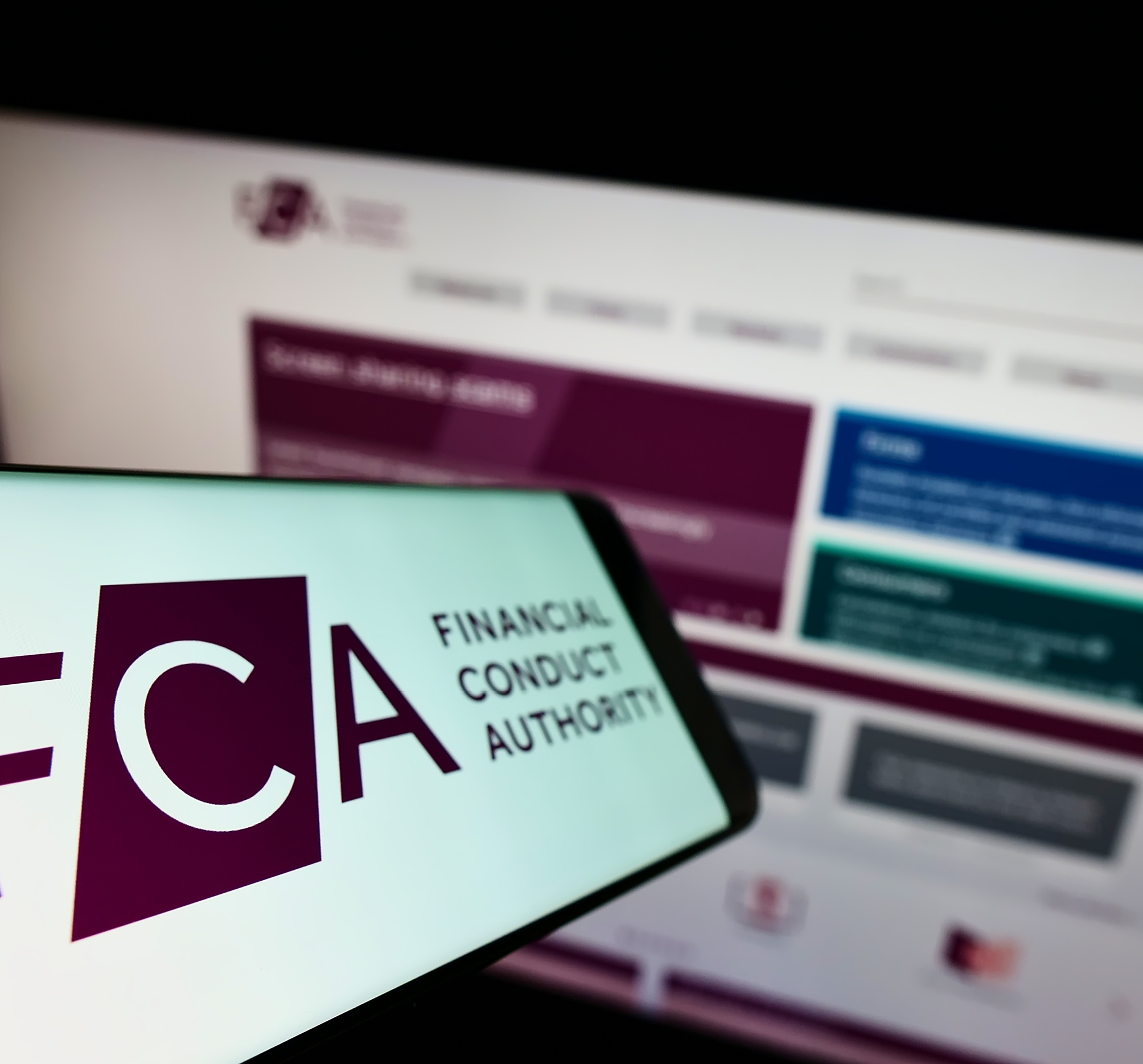Responsible Business is Good Business: How to Implement Responsible Business Initiatives
11th June 2024

With sustainability and ethical conduct becoming increasingly important to the modern-day workforce, we caught up with our ESG Director, Gillie Fairbrother to discuss setting and implementing responsible business practices and what the risks of neglecting to do this are.
Hi Gillie! Thanks for joining us. To kick off, do you want to give us an overview on responsible business practices and why businesses need to recognise their importance?
Gillie: Hi! Thanks for having me. Of course.
Well, one of the most common questions I’m asked as an ESG Director is about the challenges I face in implementing initiatives relating to ESG, sustainability, and climate. And despite these being complex and multi-faceted topics in themselves, I believe this question often comes from people having a lack of clarity about why companies are focusing on such initiatives.
Conducting responsible business has had many names, and also has many drivers, so it’s unsurprising why it can be a bit of a minefield for people to detangle and understand. It’s also worth mentioning that while some businesses have their ethics baked into the core of their being, for example social enterprises and public companies, there’s often confusion over why private equity-backed (PE) companies would care about responsible business practices, given their sole purpose is to make money.
With the risk of sounding like a broken record, performing as a responsible business is no longer just a ‘nice thing to do’, nor has it ever been, though I recognise previously it has been seen this way, it impacts the bottom line of all businesses. Particularly with growing regulation, client pressure, and employee expectations, we’re seeing more companies waking up to the fact they need to act, or risk getting left behind.
Evidently there’s a lot of pressure for businesses to perform responsibly then. Could you explain this in finer detail for us?
Gillie: There absolutely is, which is a great thing for furthering the agenda of responsible business practices and ensuring companies are truly considering what they can do better in terms of ethics, sustainability, and the like.
The pressure to perform in this area comes in many forms. For Davies specifically, we see it in our client RFPs, contracts, and their requirements for us to be assessed by ESG rating platforms. Some clients even require us to report to specific climate projects, such as setting our Science Based Targets for reaching our Net Zero goal, while others have implemented their own carbon reduction targets aligning to the length of our contract.
Each company has its own ‘materiality’ based on the type of business it does, and the relating impact on the environment, society, or even profit share. Your approach must align with your exposure, and if it does, then any proposed initiatives will be essential to the success of the business. Of course, once companies have met the minimum requirements, they’re then free to go above and beyond what is expected.
So, what is it that’s changing for PE companies that is making them succumb more to implementing these responsible business practices?
Gillie: Global weather patterns are changing, fossil fuels are running out, whatever your motivations are, we must address the transition to a lower carbon economy, changing business practices and the increasing risk to supply chains. Clients are seeking suppliers who have resilience against climate risks, and governments are trying to get a hold on the problem by imposing sanctions for companies not following regulation.
For PE companies particularly, investors are now becoming more concerned with the environmental impact of a company—and why wouldn’t they be, with potential risk to revenue and looming carbon tax on the horizon?!
You mentioned earlier that part of the pressure for businesses to do good is borne out of ESG regulation. Could you tell us a bit more about this?
Gillie: Just like the regulatory landscapes that govern areas like compliance, ESG is also regulated, with governments across the globe bringing in further expectations on companies. For those not in the know, there’s what’s known as an ‘alphabet soup’, made up of various standards, frameworks, ratings, and indices.
At present, the UK doesn’t have one single ESG law or regulation. Instead, the UK’s ESG policy consists of domestic and EU-derived laws and regulations. That being said, one key regulation concerning ESG disclosures is the Companies Act which requires large, listed companies with more than 500 employees or which exceed £500 million in annual turnover, to report on their ESG efforts yearly.
Additionally, as of last year, ESG reporting in the UK has become even more developed and regulated through the Sustainability Disclosure Requirements (SDRs). This offers a framework for companies to handle sustainability opportunities and potential risks, while setting measurable goals, with fully mandatory disclosure expected by 2025.
If you could give one piece of advice to companies who want to implement more responsible business initiatives, what would you tell them?
Gillie: There are so many parts to consider when making responsible business decisions and implementing initiatives based on this, and it’s crucial that companies know this isn’t a one-and-done exercise. In fact, nothing to do with ESG is. Rather, it’s about making small, yet sustainable changes that align with your goals.
But something I always say is that first, firms need to seek out and gain an understanding of the importance of their initiatives, right from their root—and do it with a genuine, vested interest. Your employees, clients or investors will never buy into something that seems unauthentic, so understanding exactly why you’re implementing a particular initiative is crucial. This involves speaking to your bid teams, and tapping into what your clients want and need.
Making more responsible decisions can significantly and positively impact our ability to win and retain business, so staying authentic, and taking the time to understand why you’re doing the things you’re doing, rather than mirroring what other firms do, will pay dividends.
How do companies know what areas they should be prioritising in terms of implementing responsible business initiatives?
Gillie: Going back to the topic of materiality I mentioned before, the whole premise of this is to understand what’s relevant for you to report on and improve on. These material topics will be based on your industry and consider all your stakeholders, so your employees, investors, clients, supply chain, regulators, and so on.
And firms are finding themselves under even more pressures to look inward at their material topics, with the formerly mentioned SDRs being introduced—which seek to endorse the existing International Financial Reporting Standards’ (IFRS) Sustainability Disclosure Standards.
With a key principle of the International Financial Reporting Standards’ Sustainability Disclosure Standards being around ‘double materiality’, there’s growing pressure for UK firms to also consider this. The double materiality concept builds on typical materiality assessments, instead of only reporting on how climate and social factors might impact your business, you must also consider the impact of your business on the climate and society. A two-way street if you like.
You mentioned earlier that responsible business thinking needs to be driven top-down to materialise, but do you have any advice for companies on how to engage their employees?
Gillie: This is a great question, because for your responsible business initiatives to really take off and be successful, all your stakeholders need to be engaged. And research and studies are time and time again showing us that employees want to work for a company with a good purpose—and this is true now more than ever with the modern workforce so intertwined with sustainability and morality.
To succeed with your companies’ goals, your current and future employees need to be fully briefed and on board with the goals you’ve set. Ways to keep your employees engaged could include providing training on the topic of responsible business, and regularly updating your workforce with your company’s own progress. Some companies even stir up some healthy competition to engage their employees on topics like this. For example, setting walking or biking challenges to reduce the number of greenhouse gases cars generate, or by creating a recycling challenge.
Similarly, it’s absolutely crucial that firms aren’t siloing ESG. In fact, I heard a great comparison recently that ESG and sustainability teams are like air traffic controllers for responsible business that integrate throughout the business to ensure that best practices are maintained.
Responsible business relates to everything we do—so really, it’s nothing new at all! If we look at the relevant topics that it spans, like financial performance, which is now also impacted by climate risk, to ethical business, which covers areas like corruption and fair working policies, it’s all encompassing. So, any sustainability work needs to include everyone from client-facing teams to product design, purchasing, HR departments, and so on.
Are there any risks associated with neglecting to set more responsible business initiatives? What should businesses be aware of when considering doing this?
Gillie: Financial risk is a huge driver for any business, so it’s key that businesses consider this when thinking about responsible business practices. Last year, we published our first TCFD report on climate risk, despite not falling into scope. We did this to engage our corporate governance and risk teams, and to build an awareness of climate-related risks at the highest levels.
When we talk about financial risk, we’re talking about things like a loss of business due to lack of alignment with a client’s climate goals, fines for non-compliance with regulation, future carbon tax on a company’s failure to reduce emissions—and let’s not forget the boats stuck in dried up rivers the past few years stalling delivery of vital products! And that’s just naming a few.
Thank you so much, it’s been great to chat with you about this! Any final notes to add?
Gillie: It’s been a pleasure!
I’d just say that while there’s no denying that acting responsibly needs to be prioritised for businesses of all shapes, sizes, and ownerships, just like with any other aspect of sustainability, responsible business initiatives and processes aren’t built or executed in one day. They require continuous investment and improvement, so don’t get discouraged by slow progress in meeting your goals—any progress is better than none at all!
Be sure to keep an eye on or blog and social channels to be the first to read Gillie’s monthly ESG blogs, where she’ll be delving into the topics we should be talking about. To find out more about our commitments as a responsible employer, visit the ESG @ Davies page on our website.
Related Articles
-
2023
Insurance complaints rose by 8% in 2022: How can insurance firms mitigate the risk of more customer dissatisfaction?
Rising volumes of complaints have long been a challenge for insurance…
-
2023
New FOS report show upheld insurance industry complaint rates now equal pre-pandemic levels
The Financial Ombudsman Service (FOS) annual report is an interesting read…
-
2023
Navigating the insurance landscape: The FCA's call for improved customer support and claims handling
The Financial Conduct Authority (FCA) holds a crucial position in the…


